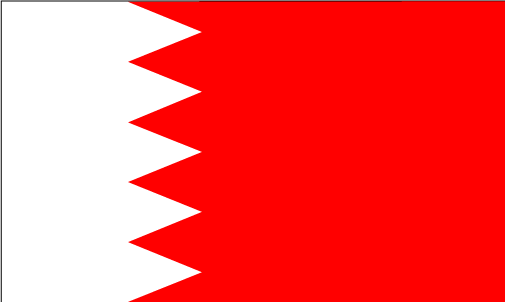Opposition groups
Ahrar albahrain
|
|

|
Polity:
Traditional monarchy
|
Political Rights:
5 |
|
Civil Liberties:
5 |
|
Status:
Partly Free |
|
Economy:
Capitalist-statist |
|
Population:
700,000 |
|
PPP:
$15,084 |
|
Life Expectancy:
74 |
|
Religious Groups:
Shi’a Muslim (70 percent), Sunni Muslim (30 percent) |
|
Ethnic Groups: Bahraini (63 percent), Asian (19 percent), other
Arab (10 percent), Iranian (8 percent) |
|
Capital:
Manama |
|
Ratings Change:
Bahrain’s political rights rating improved from 6 to 5, and its status
from Not Free to Partly Free, due to relatively free and fair
parliamentary elections. |
|
Ten Year Ratings
Timeline (Political Rights, Civil Liberties, Status):
1 being the highest, 7 the lowest |
|
1993
|
1994
|
1995
|
1996
|
1997
|
1998
|
1999
|
2000
|
2001
|
2002
|
2003
|
|
6,5,PF
|
6,6,NF
|
6,6,NF
|
6,6,NF
|
7,6,NF
|
7,6,NF
|
7,6,NF
|
7,6,NF
|
7,6,NF
|
6,5,NF
|
5,5,PF
|
Brief Overview
Much like the introduction of reforms elsewhere in the
Arab world, the political liberalization process in Bahrain has been
intended to preserve the regime's grip on power. However, unlike most of
its counterparts in the region, the Bahraini government appears
increasingly committed to acquiring the consent of the governed and
nurturing a truly democratic political culture.
Political Rights and Civil Liberties
Bahrainis have only a limited capacity to change their government
democratically. The king appoints the cabinet and controls appointments to
the Consultative Council, the upper house of parliament, which can
effectively veto decisions by the elected lower house. Municipal and
legislative elections held in 2002 were considered free and fair. Although
political parties remain illegal, opposition groups operate openly in the
country and even those that boycotted the elections have been allowed to
stage rallies of up to 30,000 people.
Bahrainis enjoy protection from arbitrary arrest and detention. The
government has the authority to monitor telephone calls and other private
correspondence.
The judiciary in Bahrain is not independent, as the king appoints all
judges, in consultation with the Supreme Judicial Council. Although courts
have been subject to government pressure concerning verdicts and
sentencing in the past, defendants receive due process protections and
trials are open and reasonably fair.
Freedom of expression is limited, but growing. The broadcast media are
state-owned and reflect official views, but privately owned newspapers and
other print media criticize government policies on most issues and reflect
a diverse range of opinions. Overt criticism of the royal family remains
rare, but unflattering coverage is becoming more tolerated. In November
2001, journalist Hafez al-Shaikh Saleh was charged with undermining
national unity after he criticized Hamad for visiting the United States.
He was acquitted, however. The government barred the Qatar-based satellite
channel Al-Jazeera from covering municipal elections in May. A November
2002 press law limited the state's capacity to close down publications
arbitrarily, but vaguely worded provisions of the new law prohibiting
activities such as the "propagation of immoral behavior" leave the door
open for state pressure on the media.
Restrictive laws requiring governmental permission to form associations
and the ban on political parties remain in place, but in practice the king
has allowed the establishment of dozens of advocacy associations,
including an independent human rights organization. The government allows
access to the country by international human rights groups, including
Amnesty International.
In September 2002, King Hamad issued a landmark law allowing the
establishment of independent labor unions without government permission.
However, a vaguely worded statute stipulating that strikes can be held
"only to achieve the workers' social and economic demands" appears
intended to depoliticize unions, and strikes are prohibited entirely in
areas such as telecommunications and electricity and water supply, as well
as in hospitals, airports, and ports. Foreign laborers are frequently
mistreated and enjoy little protection under Bahraini law.
Women enjoy most of the same rights as men, but face legal discrimination
in divorce and inheritance cases and are underrepresented in the workplace
and government. There are a large number of women's rights groups active
in Bahrain.
Islam is the state religion, and the government controls all official
religious institutions. Small non-Muslim minorities, including Jews,
Christians, Hindus, and Baha'is, are free to practice, maintain places of
worship, and display religious symbols. Sunni Muslims enjoy favored
status, while Shi'a's generally receive inferior educational, social, and
municipal services. In 1999, Shiites were permitted to work in the defense
forces and the Interior Ministry for the first time, but only in
subordinate positions.
|
